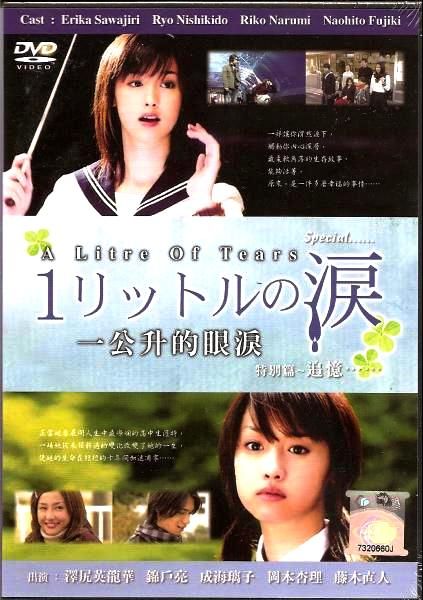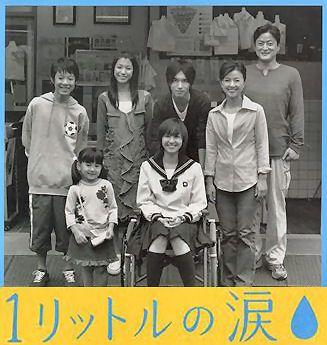One of the worries that Aya and I had was the problem of finding a caregiver. It would easily be solved if
I stopped working and looked after her. But my husband and I had financial problems: we had to raise our
other children; and we had taken out a mortgage on the new house assuming that we would both be working.
I couldn't afford to give up my job.
There was no alternative but to find a caregiver. Aya is a patient with a very serious illness. She can't
look after her everyday life at all and her speech is difficult to understand. She can only communicate by
pointing at a board of Japanese syllables, and her fingers move very slowly. She has to drag her finger
across the board until she eventually reaches the syllable she wants. It takes a lot of patience to wait for
her to spell out a message. Eating a meal takes her at least two hours. So looking after Aya demands a great
deal of effort.
The first caregiver we found was a 70-year-old woman. She treated Aya tenderly, as if she was her own
granddaughter. Aya could communicate better with her than she could with me. Just by watching the movement of Aya's mouth, she would say, "Yes, yes, I understand." I was the one who had to ask, "What did she just say?" Watching her looking after Aya so efficiently, I was very grateful that we had found such a good person and also for her valuable work.
But we had a hard time after Aya was moved to N. hospital in Toyohashi. I can't remember how many times we had to change caregivers that year. When I ask one who had stayed with her for a longish period, "Aren't
you having a hard time with Aya?", she replied, "If I gave up at this level, I wouldn't be fulfilling my
duties." But another caregiver who kept saying, "I'm having a really hard time; it's so hard and hopeless,"
didn't stay long.
The problem was the timing of a replacement. The Chairman of the Association of Caregivers had told us that
the family must look after the patient until the next caregiver is found. I would suddenly get a call from
the association at my workspace. We were in a disadvantageous position because Aya was difficult to care for and it was certain that some caregivers would soon get tired and give up. But what could we do?
I offered to stay overnight once or twice a month instead to let the caregiver take a rest. That was the
best I could do. I often went to the hospital with some reluctance, wondering if the caregiver would say
that she wanted to leave. When I asked the hospital for their cooperation in asking the association to find
a replacement, they said there was nothing they could do if the association said there was no one available.
All they could do was ring them to ask for a caregiver the first time.
Dr. T. called me and said, "Mrs. Kito, you won't find a good caregiver like that anywhere else, you know.
You should cooperate with her as much as you can so that she will stay for a long time. Aya is a difficult
patient, so no one else would want to come and look after her."
That sounded to me like a kind of threat. How could he say words like that - which would drive a weak person into an awkward position - at the same time as he was saying the hospital had nothing to do with the
association? Not only did the hospital never say, "Let's think about this issue together," it was even
refusing to help us. That suggested he was in no position to meddle in our affairs.
I went to the association several times to explain the situation and ask for their understanding. I don't
know whether it really had a labor shortage or it was just that nobody wanted to help Aya because the rumor
was gong around that she was a difficult case. But I didn't want my child, who had no hope of getting better,
to have to worry about anything apart from her disease.
I started looking for a different hospital. I rang Koseikai Hospital at my last hope and had an interview
with the general manager. I explained in detail Aya's condition, why we wanted to change hospitals, our
family situation, etc. The hospital accepted her immediately. The general manager afficiently arranged a room
for her and contacted the H. Association of Caregivers (different from the previous one). My eyes filled
with tears of relief and gratitude.
A patinet's treatment is always the first consideration, but each patient's background situation is different,
and that can disturb their recovery. It's a matter of course that the patient's family should do their best
to stand on their own feet without totally relying on other people. But those who are involved in providing
medical services have their own position, and they should alo put their energy into supporting the patients
and their families, aiming for each patient's return to society. It's not an exaggeration to say that after
all Aya was able to enter a hospital that had that kind of policy and she could concentrate on receiving
medical treatment.
I also realized that the personality of the caregiver who shares the patient's life around the clock can have
a great effect on the patient.
One day, for the first time, Aya complained about a caregiver: "Mom, this caregiver's threatening me . . .
She keeps saying she'll leave me alone . . . I get hungry during the night because she lets me only eat two
or three mouthfuls of food . . . She says my disease can't be cured, anyway."
It took Aya a long time to tell me these things, desperately moving her stiff fingers over the syllable board.
That caregiver had never showed that kind of attitude to me when I met her at the hospital. But I had been
wondering why Aya's stiffness had suddenly become worse and why she seemed to be losing her energy day by day.
It had reached the point where she had to have nasal feeding (by inserting a tube into the esophagus through
the nose). We knew Aya couldn't hope for longevity. We knew we may lose the fight against the progress of her disease. But that didn't mean Aya had to endure a bed of thorns every day.
I mustered up the courage to say to the nurse, "Aya is not a girl who says anything willful or demands too
much. She's a tenderhearted girl with delicate feelings. She apologizes when she has to wake the caregiver
up during the night. Please understand that for her to complain like this means that the situation must have
gone beyond what she can endure."
Several days later, the caregiver was replaced with a younger woman. Aya was rather tense for two or three
days because she couldn't get used to the new situation, but her stiffness almost disappeared. Eating still
takes a long time, but the new caregiver says to her, "Aya, eating is your job, you know!" Helped to eat by
the caregiver, Aya's cheeks have filled out again. The caregiver also sometimes does her make-up for her,
which provides a lot of satisfaction to her feminine sensibility.
The same caregiver continues to look after Aya today. She provides variety and joy to Aya's daily life by
helping her to sit on the bed and ride in a wheelchair. A lot of laughter can now be heared coming from her
room.
A hospital is really only a temporary kind of home, but it's where Aya now has to live permanently. I think
she regards her caregiver, who shares that life with her, as a substitute mother or a member of the family.
I can see it in her happy smile when the caregiver returns after she has been out on some business for a few
hours.
This life of suffering, in which no flowers are about to bloom and Aya is unable to enjoy as much happiness
as everyone else, will continue. But I pray that even the small pleasures she can experience now will last
at least one more day under the warm protection given her by the doctors, the hospital staff, and her caregiver.
Since the idea of publishing Aya's diary was reported in a newspaper, she has been encouraged by many people.
She has been contacted by her former teachers and visited by Okamoto-sensei. She has had the chance to meet her old friends again. Many days of joy have returned. I can only say how really grateful I am to everyone.
- January 1986 -


